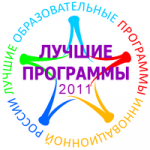|
The lawyers won the UN grant!
The undergraduate of the 1st course of the Law Institute of the Siberian Federal University Maxim Lubchenko won the UN grant, which gives the possibility to participate in the Moscow International model of the UN, which took place on April 2010 in the Moscow State Institute of International Relations (MSIIR). Together with his scientific adviser, the candidate of legal sciences, the associate professor of the international law department V.V. Tereshkova, Maxim worked out and discussed the international legal position of Saudi Arabia. We hope that Maxim will soon present the interests of the Russian Federation while working in the UN. The program of the UN Model was interesting and informative. There were many workers of international organizations (Frode Mauring, the Permanent Representative of the UN Development program in Russia; Dendev Badarch, the head of the UNESCO bureau in Moscow) and Russian officials (A.V.Yakovenko, vice-minister of foreign affairs, O.A.Roznov, vice-minister of sport, tourism and youth politics; L.E.Slutzkiy, the Chairman of the Russian Peace Fund, P.V. Sulyandziga, the Chairman of the Association of scanty, indigene nations of the North, Siberia and Distant East) on the opening of the UN Model 2010. The delegates took part in the training, during which the best worker of the North-European and Baltic researches Center, the doctor of the historical sciences, the professor of the European Integration Department of the MSIIR L.S.Voronkov read the lecture on “The role of the UN in the contemporary world. The millennium’s development goals”. In the network of the agenda the students-delegates listened to the lecture read by V.N.Kulebyakin, the candidate of the legal sciences, the professor of the international law department of the MSIIR. The UN Model gave the students a great opportunity to meet V.V. Pozner and to ask him questions. For the first time the UN Model consisted from 8 bodies instead of 6:
The students of the Law Institute of the SFU have a unique opportunity not only to study international law in the home institute, but also to demonstrate their knowledge in the international competitions and contests. And they are rather successful in it, as practice shows! |


